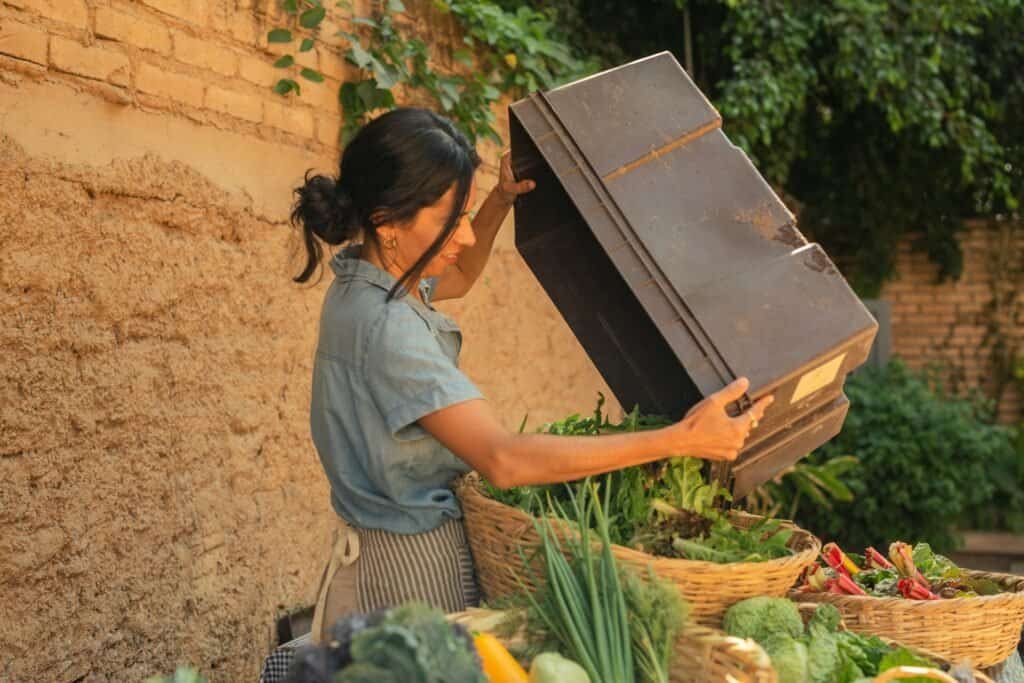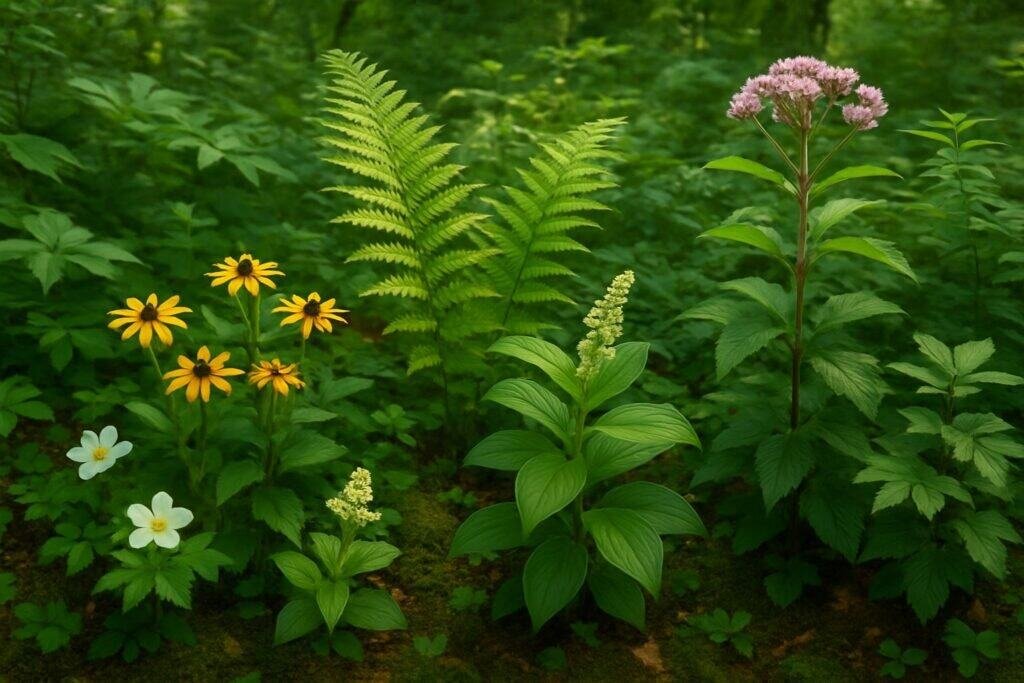Choosing the best compost for your vegetable garden is essential for promoting robust plant growth and soil health. This natural soil amendment is a key ingredient for a thriving growing environment, turning food scraps, garden waste, and kitchen scraps into nutrient-rich organic matter.
Whether you have raised beds that need to retain moisture, sandy soil that requires better nutrient retention, or simply aim to grow your own food, adding organic compost can significantly improve the quality of your potting soil and overall garden plants.
As you embark on this article, you’ll discover how composting can be the key to a lush and productive vegetable garden. Stay tuned to unearth the options on the market that can help your garden plants flourish.
The Top Bagged Compost Brands for Your Greens
Here are the best compost for vegetable gardens on the market:
1. Michigan Peat 40 Pound Garden Magic Compost– Premier Organic Option
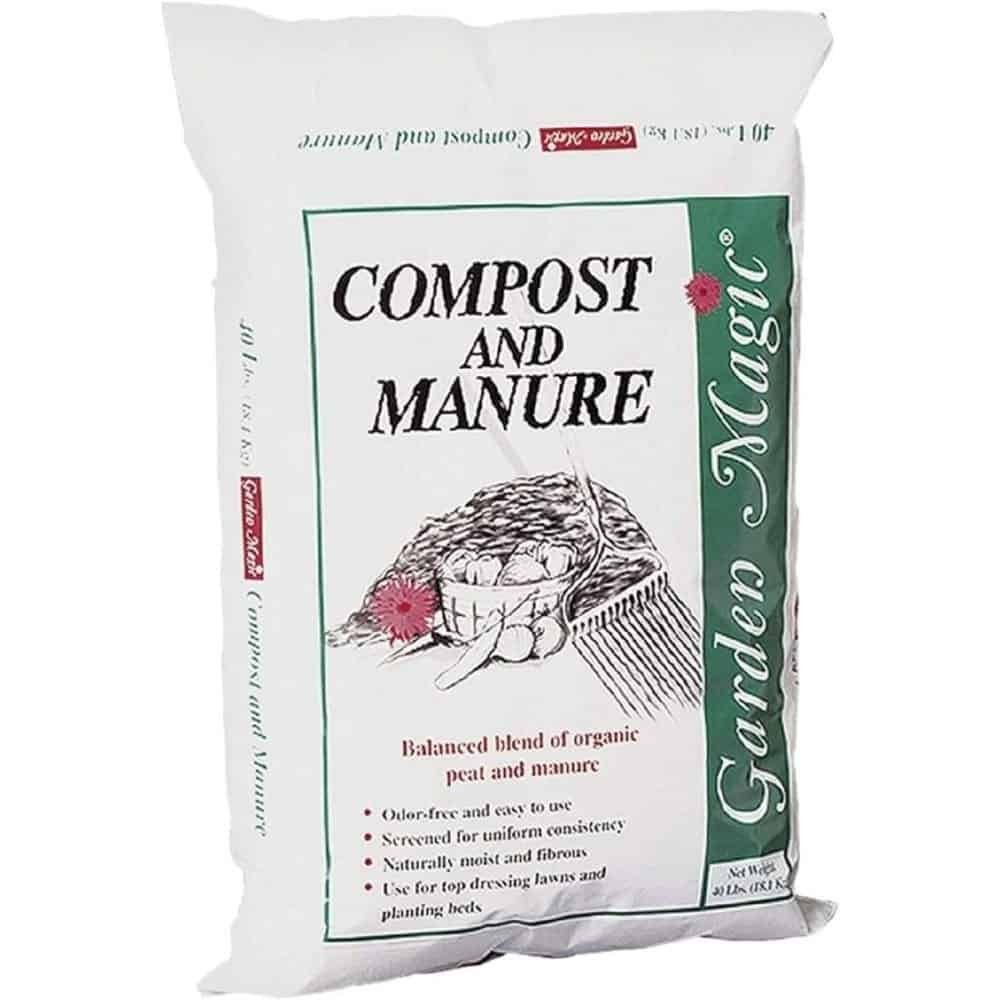
Michigan Peat Garden Magic Compost is one of the best organic options on the market for gardeners seeking a premier organic compost. This product is a unique blend of reed sedge peat and organic compost, which includes recycled materials such as wood chips and garden debris.
It’s designed to enrich your soil, promoting a fertile environment for all types of garden plants. The versatility of Michigan Peat Garden Magic Compost makes it suitable for use in outdoor gardens, pots, and raised beds.
With a commitment to sustainability, this compost is not only beneficial for your plants but also for the environment. It provides a natural means to recycle garden debris and other organic materials into a rich, nurturing medium. This 40-pound bag is an excellent choice for gardeners who want to improve their soil with the best organic compost that nature can provide.
Pros
- Enhances soil structure and fertility
- Incorporates recycled materials
- Improves nutrient retention and water capacity
- Suitable for a wide variety of plants and garden settings
Cons
- May contain wood chips that are larger than preferred
- Potential inconsistency in the compost mixture
2. Brut Organic Worm Castings– Best Worm Casting
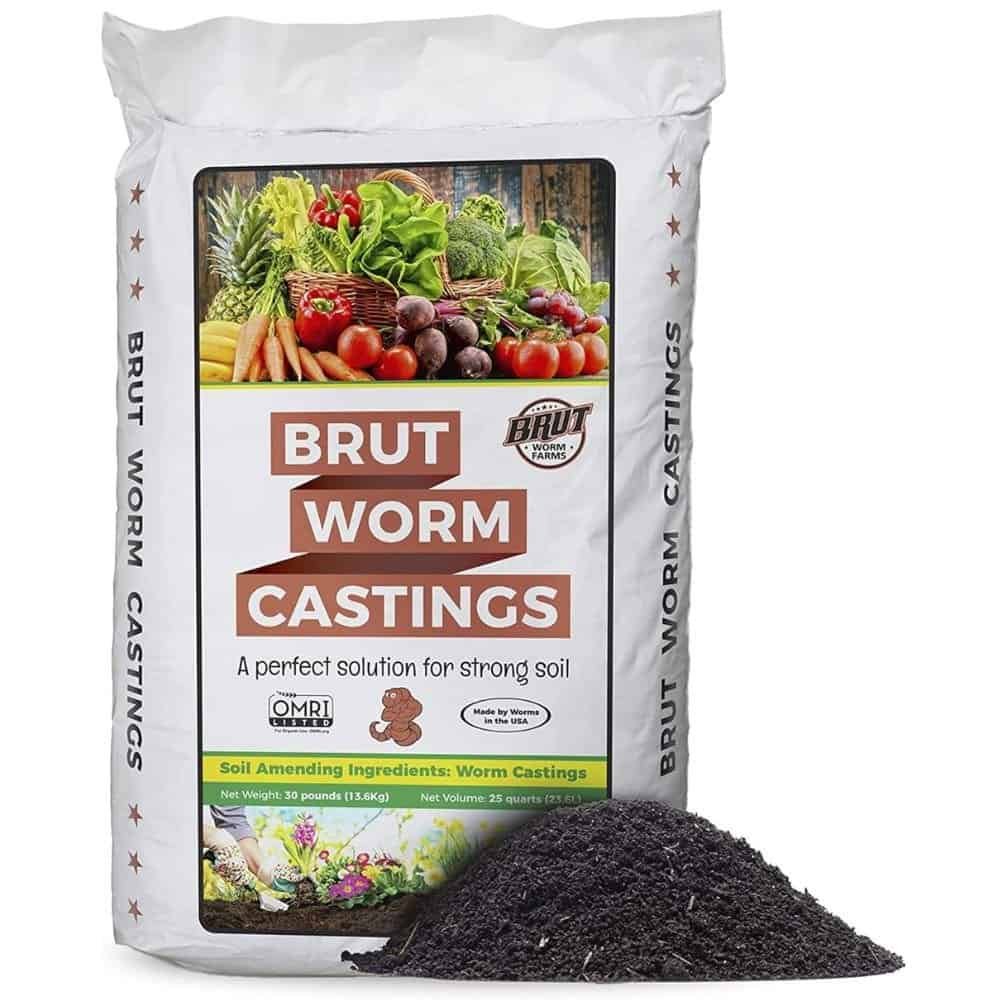
Brut Organic Worm Castings offer gardeners the best organic option for those looking to incorporate worm castings into their garden’s soil. This organic compost is produced by earthworms and is incredibly rich in nutrients that are essential for plant growth.
These worm castings are an excellent way to boost soil health and provide your plants with the nourishment they need. The gentle, natural process ensures that the beneficial microbes and enzymes remain intact, offering your garden an organic boost without the use of harsh chemicals.
These worm castings are one of the top options on the market, revered for their purity and effectiveness. The texture of Brut Organic Worm Castings is fine and uniform, making it easy to mix into your existing soil or potting mix. This product is especially suited for organic gardeners who prioritize sustainable and recycled materials in their gardening practices.
Pros
- Rich in essential nutrients and microbes
- Promotes vigorous plant growth
- Easy to incorporate into the soil
- Produced through sustainable practices
Cons
- Higher cost compared to some other compost products
- May attract flies if not properly managed
3. Jobe’s Organics Granular Garden Fertilizer– Best for Tomato Plants
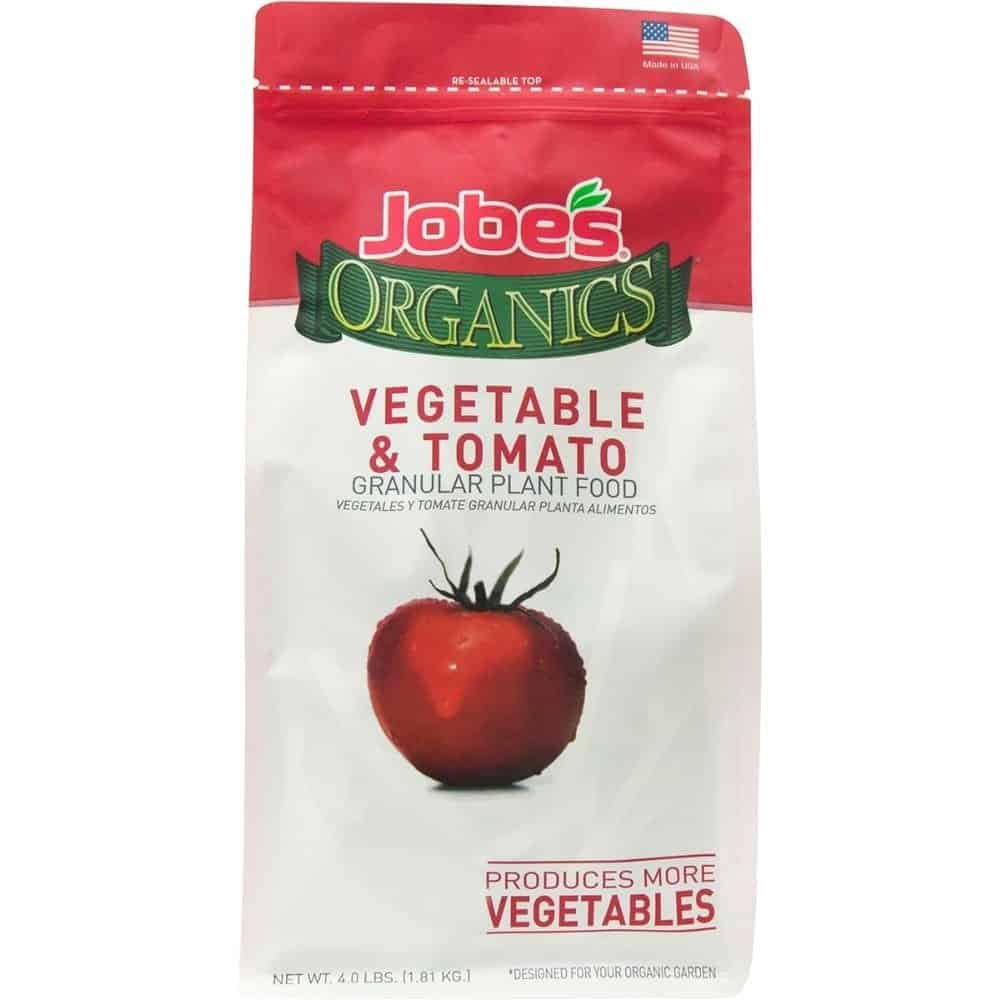
Jobe’s Organics Granular Garden Fertilizer is specifically formulated to cater to the needs of tomato plants, which are often the stars of a vegetable garden. This organic compost is blended with a range of natural ingredients that provide a balanced nutrient profile, ideal for encouraging bountiful tomato harvests.
The granular form of this fertilizer makes it easy to spread and incorporate into the soil, ensuring that your tomato plants receive a consistent supply of the essential nutrients they need to produce juicy, delicious fruits.
The product is also infused with beneficial microorganisms that improve soil conditions and help to prevent disease. Jobe’s Organics Granular Garden Fertilizer is an organic, environmentally friendly choice that supports the health of your plants and the planet. Tomato growers will appreciate this targeted solution for their garden’s needs.
Pros
- Formulated specifically for tomatoes
- Rich in beneficial microorganisms
- Easy-to-use granular form
- Organic and environmentally friendly
Cons
- May require frequent reapplication
- Specific to tomato plants, less versatile
4. Dr. Earth Organic 5 Tomato, Vegetable and Herb Fertilizer– Best Herb Fertilizer
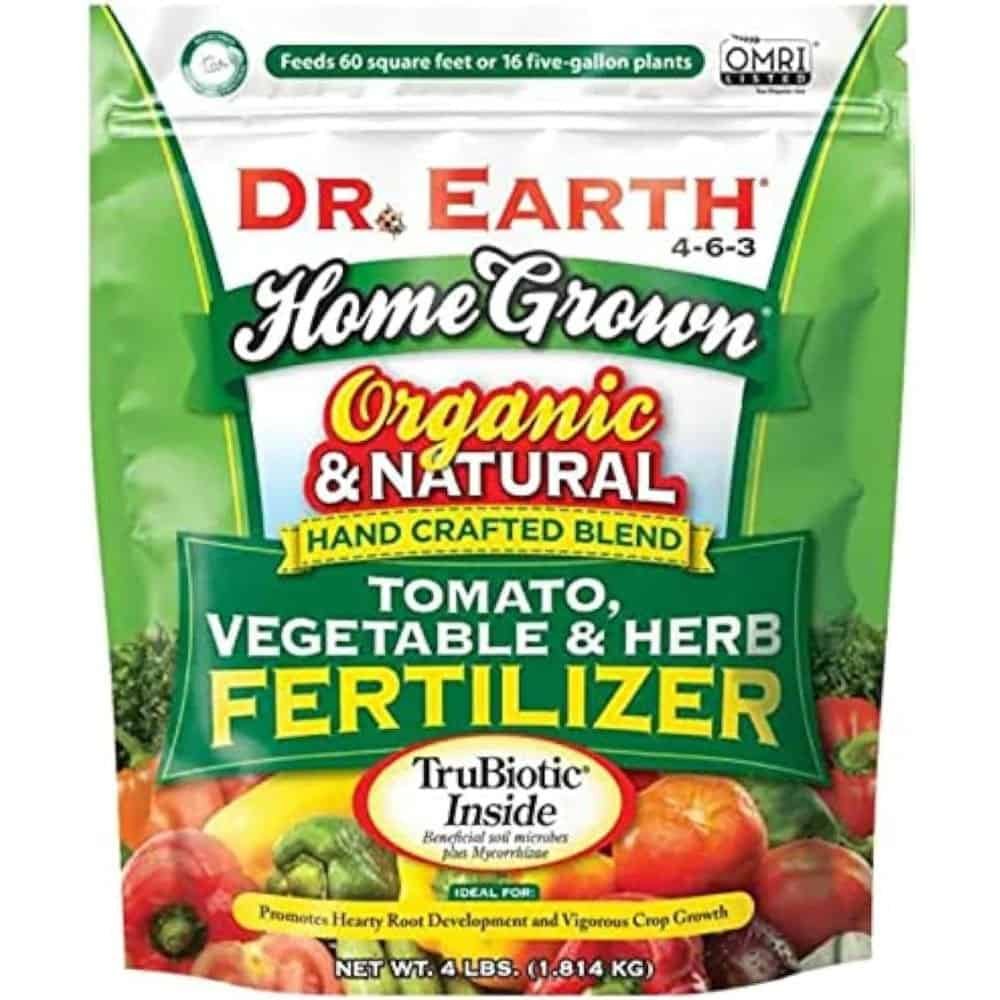
Dr. Earth Organic 5 Tomato, Vegetable, and Herb Fertilizer is a comprehensive organic compost solution designed to enhance the growth of not just tomatoes, but a wide range of vegetables and herbs. This product is rich in organic nutrients and is formulated to feed plants steadily over time, promoting strong root development and healthy growth.
It’s a versatile option that can be used for both in-ground gardens and container plantings, making it a valuable addition to any gardener’s toolkit. The inclusion of probiotics and mycorrhizae in Dr. Earth Organic 5 Fertilizer ensures that the soil is teeming with beneficial life that supports plant health.
This product is ideal for creating a nutrient-dense environment where garden plants can flourish. Gardeners looking for an all-purpose organic compost that caters to a variety of plants will find this fertilizer to be an excellent choice.
Pros
- Supports a wide range of vegetables and herbs
- Contains probiotics and mycorrhizae for soil health
- Feeds plants over time for sustained growth
- Suitable for in-ground and container gardening
Cons
- May not be suitable for plants with specific nutrient needs
- Some users may find the smell to be strong
5. Black Kow Nitrogen Phosphate Composted Cow Manure Fertilizer– Best for Raised Beds
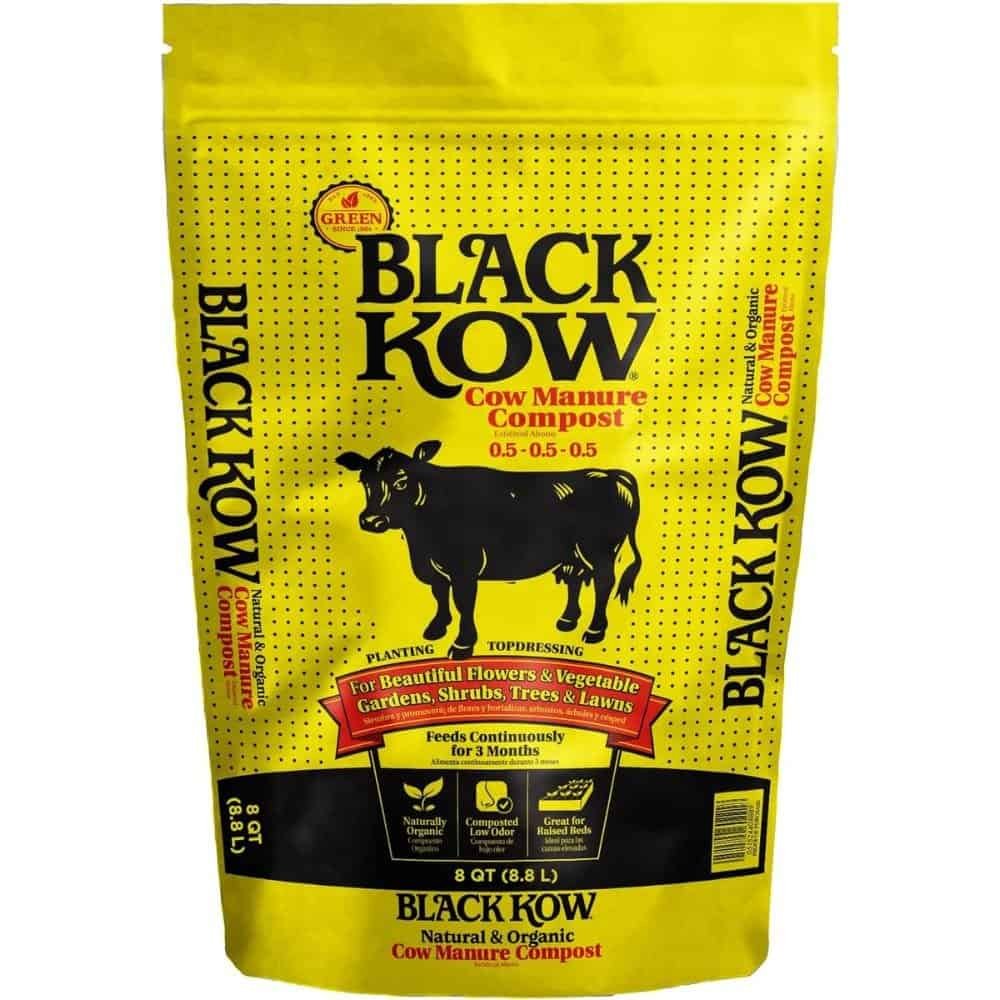
Black Kow Nitrogen Phosphate Composted Cow Manure Fertilizer is an excellent choice for gardeners with raised beds. This composted manure is a powerhouse of nutrients, providing both nitrogen and phosphate, which are essential for plant growth.
The composted nature of the product means that it is gentle on plants and won’t burn them, as fresh manure might. Black Kow is well-composted, making it a safe and highly beneficial addition to your garden soil.
With its rich organic content, it helps to improve soil structure, increase moisture retention, and enhance the overall fertility of the soil. It’s especially useful for raised beds where soil quality can vary, and nutrients need to be replenished regularly. Gardeners who prioritize organic and natural soil amendments will find Black Kow to be a valuable tool for maintaining a productive and healthy garden.
Pros
- Enhances nutrient-rich soil amendment for robust vegetable growth
- Easy to apply directly to garden beds or as a foliar spray
- Contains a balanced mixture of organic materials for optimal plant health
- Improves soil structure, aiding in moisture retention and root development
Cons
- May not be suitable for all personal preferences due to the texture
- Higher cost compared to some other organic fertilizer options
6. Charlie’s Compost Organic Fertilizer for Home Gardens– Best Easy-to-Use Compost
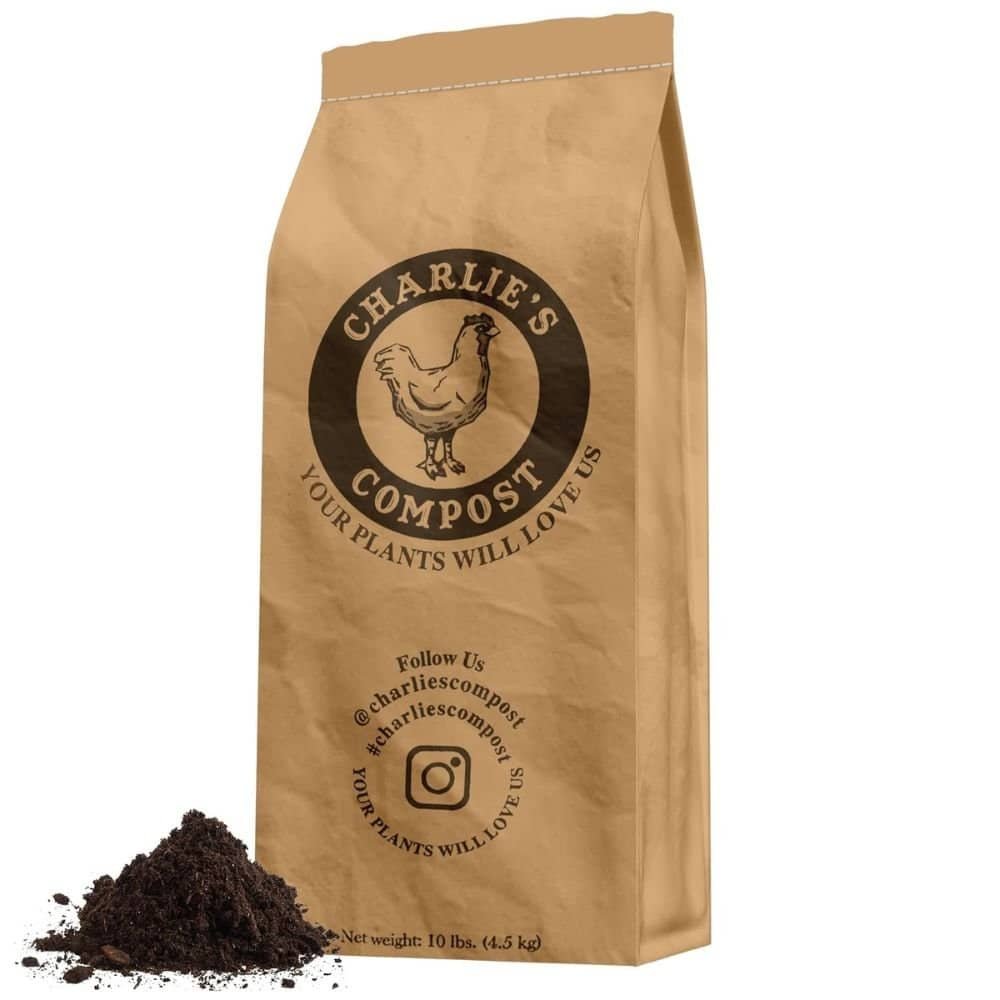
Charlie’s Compost Organic Fertilizer is crafted for the gardener seeking simplicity and effectiveness. This certified organic product is a rich blend of chicken manure, cornstalks, straw, forest products, and clay that has undergone a thorough decomposition process, ensuring the delivery of essential nutrients to your vegetable garden.
A standout for its easy-to-use nature, this organic fertilizer aids in enhancing soil pH and improving soil temperature regulation, which are critical factors for vegetable gardening. The organic matter within Charlie’s Compost acts as a sponge for moisture and nutrients, releasing them slowly over time to feed your plants.
This product, teeming with beneficial microorganisms, not only nourishes your organic vegetables but also contributes to building a nutrient-rich soil structure that supports a bountiful harvest.
Its versatility allows it to be used in various applications, from top-dressing to mixing into the soil, making it one of the best compost options for both novice and experienced gardeners alike.
Pros
- Consists of a nutrient-rich mixture promoting vigorous organic vegetable growth
- Easy application process, suitable for all levels of gardening expertise
- Enhances soil structure, optimizing root growth and water retention
- Provides a slow release of essential nutrients throughout the growing season
Cons
- May attract wildlife due to its organic material content
- Possibility of inconsistency in product texture between batches
7. Espoma Organic Land and Sea Gourmet Compost– Perfect for Plants and Vegetables
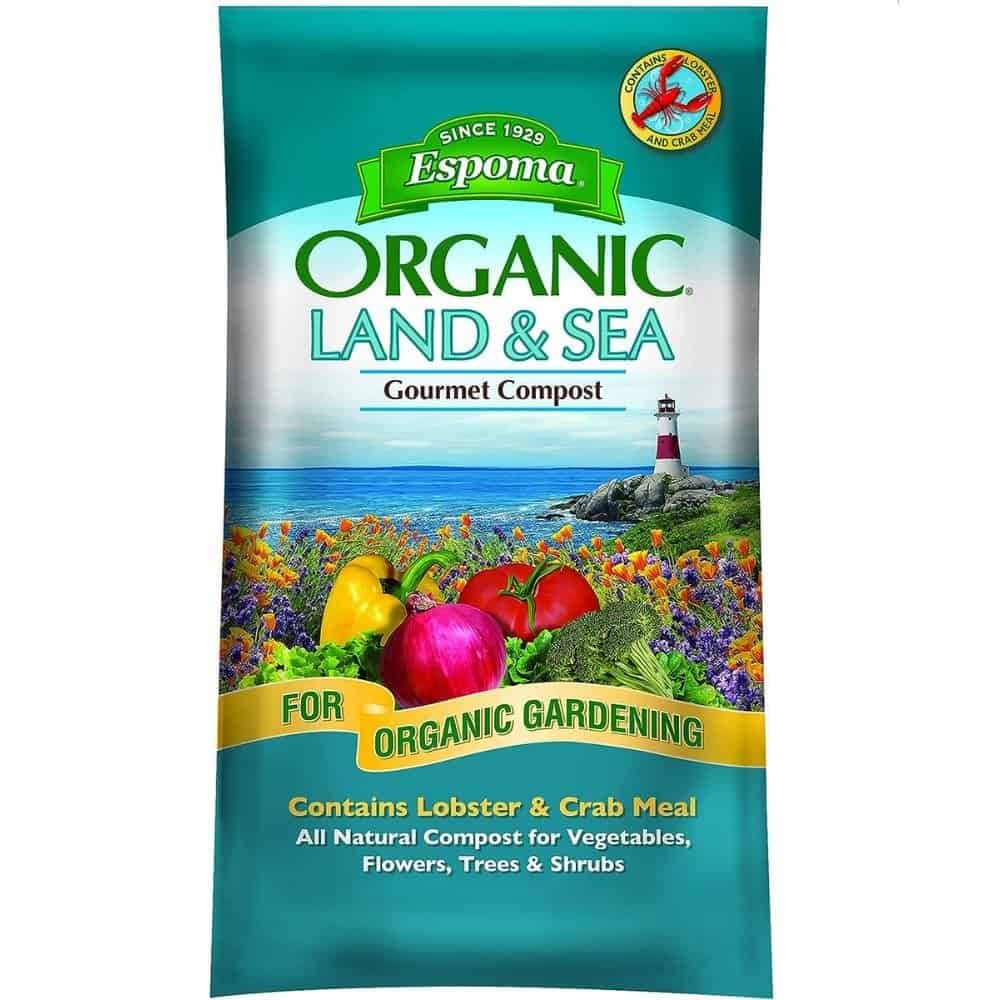
For gardeners in pursuit of the best-bagged compost, Espoma Organic Land and Sea Gourmet Compost stands out as an exceptional choice. This top-tier compost combines the nutritional benefits of both land and sea, featuring a unique blend of peat moss, sphagnum moss, and seaweed among other plant materials like aged humus and mushroom compost.
These ingredients create a potent, nutrient-rich soil amendment that fuels growth and health in plants and vegetables. What sets Espoma’s product apart is its composition which not only provides vital nutrients but also enhances soil structure and temperature moderation conducive to vegetable gardening.
Espoma’s rich mixture of organic materials is also ribbon organics omri certified, ensuring it meets stringent standards for organic gardening. This product is particularly adept at boosting soil fertility and promoting vibrant, productive vegetable gardens without the addition of any unpleasant odor, making it a top contender for best compost for growing vegetables.
Pros
- Delivers a rich blend of sea-based and land-based compost
- Improves soil structure and fosters a healthy root system
- OMRI certified for organic gardening use
- Lacks any unpleasant odor, making it user-friendly
Cons
- Maybe less widely available than other compost brands
- The price point could be higher due to premium organic ingredients
Factors to Consider When Compost for Vegetable Garden
Here are important factors to consider when choosing compost for your vegetable garden:
1. Ingredients
As you select compost for your vegetable garden, a balanced mix of decomposed organic materials is paramount. This ensures your plants receive a diverse range of nutrients vital for growth.
The composition of the compost should include a variety of plant materials, such as leaves, vegetable scraps, and coffee grounds, which work together to enrich the soil with essential nutrients.
2. Moisture Content
Moisture content in compost is another crucial factor to consider. Compost should be moist but not soggy, as too much water can lead to anaerobic conditions that slow down the decomposition process and potentially harm your plant roots. Conversely, compost that is too dry may not effectively break down, limiting its ability to contribute to a bountiful harvest.
3. Decomposition State
The state of decomposition of your compost is also important. Fully decomposed organic matter will not continue to break down in the soil, thereby not robbing your plants of nitrogen. Moreover, mature compost is typically more stable in terms of pH and nutrient levels, providing consistent benefits to plants throughout the growing season.
4. Source and Quality
Last but not least, consider the source and quality of the compost. Certified organic compost ensures that the product is free from harmful chemicals and synthetic components, which is especially important for those growing organic vegetables. High-quality compost will also be free of weed seeds and pathogens, supporting plant health and reducing the need for additional garden maintenance.
Frequently Asked Questions (FAQs)
1. When should you spread compost In your garden?
Timing is critical when it comes to spreading compost in your garden. The best time to add compost is a few weeks before planting, allowing the compost to integrate with the soil. You can also spread compost during the growing season to replenish nutrients and improve soil structure.
Another effective time to apply compost is in the fall, after the harvest. This allows the compost to break down further over the winter and enrich the soil for the next year’s plants. Regardless of timing, incorporating compost into your garden will enhance the soil’s fertility and help ensure a successful growing season.
2. What soil Is best for a vegetable garden?
The best soil for a vegetable garden is a well-drained, loamy soil that is rich in organic matter. Composted soil is ideal as it provides vital nutrients and improves both texture and structure, which in turn helps to prevent soil erosion. Additionally, soil with compost tends to have better moisture retention, which is beneficial for vegetable growth.
When choosing soil for your vegetable garden, aim for a balance between sandy and clay soils. The incorporation of compost helps to create this balance, offering a medium that supports strong root systems and healthy plant development. Adding compost also ensures that your vegetable garden has access to the nutrients it needs for a thriving harvest.
3. Which is better compost or topsoil?
When considering whether compost or topsoil is better for your garden, it’s important to understand their distinct roles. Compost is rich in nutrients and used to enrich the soil, while topsoil is the uppermost layer of the soil, which can vary in quality and nutrient content.
Many gardeners find that a combination of both provides the best results. Topsoil offers a base for plants to grow in, while compost improves the soil’s fertility and structure. Ultimately, the choice depends on the current condition of your garden’s soil and what you are looking to achieve with your planting.
4. How long does it take to make compost?
The time it takes to make compost can vary widely depending on several factors, including the materials used, the size of the compost pile, and environmental conditions like temperature and moisture. In general, compost can take anywhere from several months to a couple of years to fully decompose.
A well-managed compost pile that is regularly turned and balanced in terms of greens and browns may be ready in as little as three months. However, passive composting, where the pile is left undisturbed, will take longer. Garden centers often offer ready-made compost for those who prefer not to wait.
5. How much compost should you add to your garden?
The amount of compost you should add to your garden depends on the condition of your soil and the crops you’re planning to grow. A general rule of thumb is to add a 2-3 inch layer of compost to new beds or an inch to existing beds. This should be done at least once a year, ideally before the growing season begins.
For specific plants with higher nutrient needs, like tomatoes, you may want to add more compost. Additionally, compost tea can be used as a liquid fertilizer throughout the growing season. Remember that compost should be thoroughly mixed into the soil, not just left on the surface, to maximize the benefits of added nutrients like phosphorus and potassium.
6. What should you avoid in compost?
When creating compost for your vegetable garden, it’s essential to know which materials to exclude. Avoid adding meats, dairy products, and oily foods as they can attract pests and cause unpleasant odors. Diseased plant materials and perennial weeds like dandelions or thistles can spread disease and seeds into your garden. Also, refrain from composting pet wastes, as they may contain parasites harmful to human health.
The Final Verdict on Best Compost Choices
After reviewing a variety of compost options for your vegetable garden, the key is finding a product that aligns with your specific gardening needs. Whether it’s the organic richness of Michigan Peat or the targeted nutrient boost from Dr. Earth Organic 5, each compost offers unique advantages.
Each compost has its pros and cons, but overall, the best compost for your vegetable garden will depend on plant needs, soil condition, and personal preference. Remember, the right compost will not only nourish plants but also improve soil structure, enhance moisture retention, and promote a healthy ecosystem in your garden. Choose wisely to ensure a bountiful and vibrant vegetable garden.

